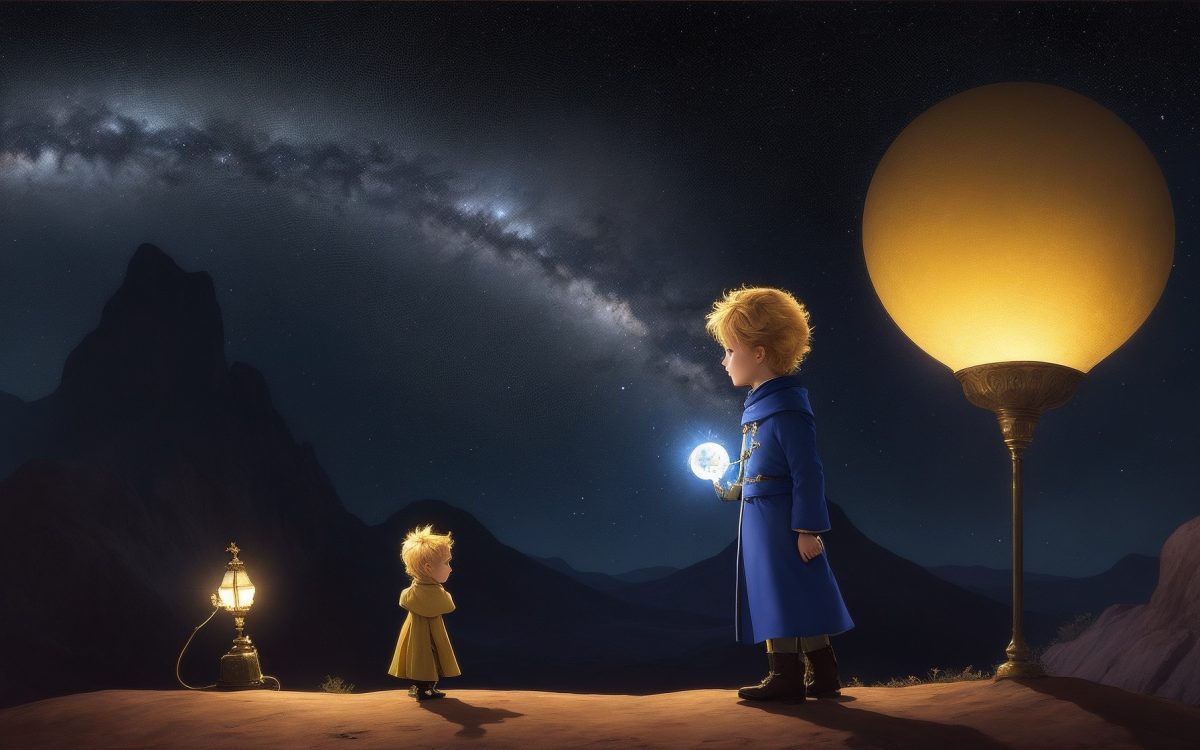When I contemplate our present-day religious leaders, I am reminded of the lamplighters of the Little Prince. Although our religious doctrines and laws were initially created to help us grow, explore the world, and worship God, we must remember that they are not meant to be eternal. Rules that once made sense can become outdated and require adjustment to align with the changing times while still retaining their essence. Unfortunately, some religious individuals become slaves to their own making and forget the importance of adaptability.
By replacing the Little Prince’s lamplighter with our religious leaders and the streetlights with our religious laws and doctrines, we can examine how and when they were formulated, their original purposes, and how they may no longer fit into today’s contexts. We need to evaluate the relevance of these laws and doctrines and make adjustments as necessary.
In the Little Prince’s dialogue with the Lamplighter, we can find inspiration to ensure that we do not become slaves to our religious laws and doctrines. We must learn from the Lamplighter’s mistakes and avoid becoming like him, constantly working without rest and sleep. Instead, we must remain open to change and adapt our religious doctrines and laws to fit the times, while still retaining their core values.
The Fifth Planet
“The fifth planet was very strange. It was the smallest of all. There was just enough room on it for a streetlamp and a lamplighter. The little prince was not able to reach any explanation of the use of a street lamp and a lamplighter, somewhere in the heavens, on a planet which had no people, and not one house. But he said to himself, nevertheless:
“It may well be that this man is absurd. But he is not so absurd as the king, the conceited man, the businessman, and the tippler. For at least his work has some meaning. When he lights his streetlamp, it is as if he brought one more star to life, or one flower. When he puts out his lamp, he sends the flower, or the star, to sleep. That is a beautiful occupation. And since it is beautiful, it is truly useful.”
When he arrived on the planet he respectfully saluted the lamplighter.
“Good morning. Why have you just put out your lamp?”
“Those are the orders,” replied the lamplighter. “Good morning.”
“What are the orders?”
“The orders are that I put out my lamp. Good evening.”
And he lighted his lamp again.
“But why have you just lighted it again?”
“Those are the orders,” replied the lamplighter.
“I do not understand,” said the little prince.
“There is nothing to understand,” said the lamplighter. “Orders are orders. Good morning.” And he put out his lamp.
Then he mopped his forehead with a handkerchief decorated with red squares.
“I follow a terrible profession. In the old days it was reasonable. I put the lamp out in the morning, and in the evening I lighted it again. I had the rest of the day for relaxation and the rest of the night for sleep.”
“And the orders have been changed since that time?”
“The orders have not been changed,” said the lamplighter. “That is the tragedy! From year to year the planet has turned more rapidly and the orders have not been changed!”
“Then what?” asked the little prince.
“Then–the planet now makes a complete turn every minute, and I no longer have a single second for repose. Once every minute I have to light my lamp and put it out!”
“That is very funny! A day lasts only one minute, here where you live!”
“It is not funny at all!” said the lamplighter. “While we have been talking together a month has gone by.”
“A month?”
“Yes, a month. Thirty minutes. Thirty days. Good evening.”
And he lighted his lamp again.
As the little prince watched him, he felt that he loved this lamplighter who was so faithful to his orders. He remembered the sunsets which he himself had gone to seek, in other days, merely by pulling up his chair; and he wanted to help his friend.
“You know,” he said, “I can tell you a way you can rest whenever you want to.”
“I alwavs want to rest,” said the lamplighter.”






